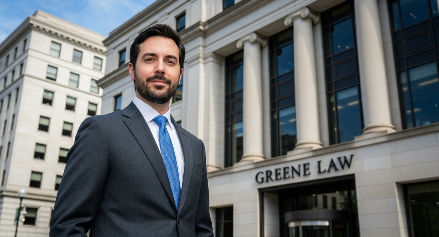
Kennedy Funding Lawsuit: Understanding the Legal Challenges
Navigating the legal issues surrounding the Kennedy Funding lawsuit can be complex. For anyone involved in or considering commercial lending, understanding the core cases, allegations, and broader implications is crucial. This post provides a clear, in-depth overview of the Kennedy Funding lawsuits, offering insights into how disputes in private lending arise and are addressed.
What Is Kennedy Funding?
Kennedy Funding, Inc. (KFI) is a private commercial lender specializing in land acquisition and development loans. With over $4 billion in transactions, it operates in a high-stakes space where risks and rewards are equally steep. CEO Kevin Wolfer has positioned the company as a source of capital for investors who might not qualify for traditional loans.
However, KFI’s operating model has led to numerous disputes over the years, many revolving around allegations of fraud, breach of contract, and predatory lending practices. These lawsuits offer a window into the legal complexities of private lending.
How Did the Kennedy Funding Lawsuit Come About?
The Kennedy Funding lawsuit refers broadly to a series of legal actions involving KFI. High-profile cases such as Quimera Holding Group SAC v. Kennedy Funding Financial LLC and Kennedy Funding v. Ruggers Acquisition Development highlight disputes related to commitment fees, unmet loan agreements, and accusations of unfair practices.
These cases underscore key issues in commercial real estate lending:
- Commitment Fees: Payment upfront for access to a loan that may not materialize can lead to borrower dissatisfaction and legal challenges.
- Contract Clarity: Poorly drafted or ambiguous agreements can create disputes when expectations diverge.
- Lender Practices: Allegations of fraud or predatory lending frequently revolve around transparency and fairness.
Major Cases in the Kennedy Funding Lawsuit Series
1. Quimera Holding Group SAC v. Kennedy Funding Financial LLC
This case remains one of the most notable examples of disputes over commitment fees. Quimera Holding Group alleged that KFI failed to refund fees for a loan that fell through. While litigation centered on fee use and contractual obligations, courts also evaluated broader issues of lender transparency.
Key takeaway: Loan commitment letters must be clear to avoid misunderstandings or legal backlash. Borrowers should scrutinize them carefully before signing.
2. Kennedy Funding v. Ruggers Acquisition Development
When agreements falter, lenders sometimes sue to enforce terms. This case involved Kennedy Funding’s claims against Ruggers for various breaches. The plaintiff sought damages for unmet loan conditions, showcasing how contracts can evolve into costly disputes.
Key takeaway: Detailed communication and robust documentation can help lenders and borrowers avoid conflicts.
3. Omni Credit Alliance, Inc. v. Kennedy Funding
Here, Omni Credit sought the return of $260,000 in application and commitment fees after a loan failed to close. The litigation revealed how disputes over fee structures in private lending can escalate.
Key takeaway: Always understand how fees are applied and refunded before engaging with private lenders like Kennedy Funding.
What Are the Central Allegations Against Kennedy Funding?
1. Breach of Contract
At the heart of many lawsuits is the claim that Kennedy Funding didn’t fulfill its obligations as outlined in contracts. Borrowers accuse KFI of reneging on commitments or delaying loan closures. Courts typically assess whether failure to perform stemmed from the borrower or lender.
2. Fraud
Fraud allegations range from misrepresentation of loan terms to deceptive practices during negotiation. For example, some borrowers claim that KFI misled them about the chances of loan approval while collecting hefty fees upfront.
3. Predatory Lending
Borrowers accuse Kennedy Funding of applying unreasonable or unconscionable terms, charging excessive fees, and failing to negotiate in good faith. While not every claim leads to liability, these accusations can harm a company’s reputation.
| Allegation | Example | Legal Risk |
|---|---|---|
| Breach of Contract | Failure to return commitment fees | Damages or rescission of contract |
| Fraud | Misrepresentation of loan conditions | Financial penalties; reputational harm |
| Predatory Lending | Charging exorbitant fees | Regulatory oversight or penalties |
Why Do These Lawsuits Matter for the Lending Industry?
Kennedy Funding’s challenges highlight risks that all involved in commercial lending should consider. By analyzing industry practices, cases like these serve as cautionary tales for both borrowers and lenders.
For Lenders
- Clarity Is Crucial: Clear contracts and transparent practices reduce litigation risks.
- Due Diligence Matters: Vet borrowers thoroughly to avoid transactional failures.
- Reputation Is Everything: Accusations of fraud or predatory lending can damage a business more than any court ruling.
For Borrowers
- Upfront Fees Are Risky: Scrutinize how and when fees are refundable.
- Get Legal Support: Consult attorneys to review terms before signing.
- Be Prepared for Uncertainty: Complex loans with nontraditional lenders often carry higher risks.
Broader Implications for the Industry
The Kennedy Funding lawsuits underscore the significance of borrower protections, ethical lending practices, and effective contract drafting. They also highlight the fine line between legitimate high-risk lending and predatory behavior, placing pressure on lenders to adopt stricter compliance measures.
What Can Borrowers Learn from This?
Understanding the lessons of the Kennedy Funding lawsuit can help borrowers avoid costly mistakes. Here are some practical tips:
- Read Every Detail: Loan agreements can be complex, but overlooking terms may result in costly disputes.
- Ask Questions: If any part of the contract or process seems unclear, demand clarification before proceeding.
- Protect Yourself Legally: Work with an experienced attorney when negotiating high-stakes loans.
- Understand Fees: Ensure you grasp how commitment fees, application charges, and other costs are handled.
FAQs About the Kennedy Funding Lawsuit
Is Kennedy Funding still lending while facing lawsuits?
Yes, Kennedy Funding continues to operate. The lawsuits primarily focus on specific transactions or practices but don’t halt business operations.
What’s the main problem borrowers face with Kennedy Funding?
The most common challenges include disputes over upfront fees, unmet loan expectations, and concerns about loan terms.
How can borrowers avoid issues like these?
Thorough due diligence, seeking legal support, and ensuring total clarity about loan agreements can help borrowers minimize risks.
Final Thoughts
The Kennedy Funding lawsuit series offers valuable lessons for commercial lending. While the legal disputes highlight risks and challenges in private lending, they also emphasize the necessity of strong contracts, transparent practices, and careful decision-making by both lenders and borrowers.
As ongoing cases unfold, they will continue to shape industry standards, prompting lenders to refine their practices and borrowers to become more vigilant. Whether you’re a lender or a borrower, learning from these cases can help you make smarter, more informed decisions.
Meta Information
Title: Kennedy Funding Lawsuit Explained: What Borrowers and Lenders Need to Know
Meta Description: Learn about the Kennedy Funding lawsuit, including its causes, legal implications, and lessons for commercial lenders and borrowers in 2025.






